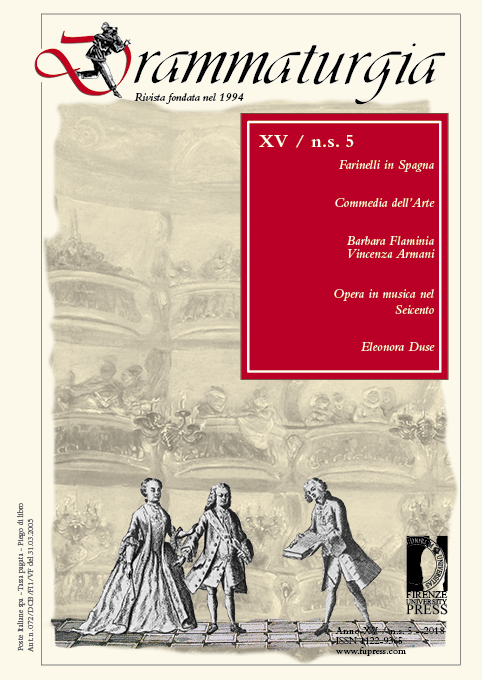Published 2020-05-13
Keywords
- Herald,
- Street Singer,
- Florence,
- Civic Performance,
- Niccolò Machiavelli
How to Cite
Abstract
This paper deals with the farces and the political and moral comedies performed during the meals of Florentine Signoria, at the beginning of 16th century, in order both to offer an amusement to its members, and to communicate political, ethical and moral messages related to the current situation and needs. Through the analysis of some plays and their authors, the author aims to underline how this type of dramaturgy was utterly peculiar to Florentine culture inasmuch as, in its structure and contents, it derived both from the mingling of the sacra rappresentazione (sacred play) with the classical comedy, and from the performative tradition of heralds and street singers. The originality of this contribution consists mainly in having introduced the concept of ‘civic performance’ within a wider investigation of the relationship between theater and politics in the Renaissance. This link would, in itself, be taken for granted, given the economic and relational implications that theatrical production involves. However, it acquires new importance if investigated in relation to the constant change in political balance, and its related communication and propaganda needs, that induced the Florentine ruling classes: 1. to recognize to the heralds and other entertainment specialists the role of civic ‘political voices’; 2. to solicit the production of dramaturgical and recitative compositions (from the street singers’ gnomic poetry, to the sacra rappresentazione, from the farce, to the classical comedy) of which the typological variety fulfilled exactly temporary communication needs. These texts are interesting not only for their relevance in local history, although they are intrinsically linked to it, but also because they allow us to understand and more efficiently reconstruct some basic mechanisms of political communication, practiced through oral and/or theatrical performance.


